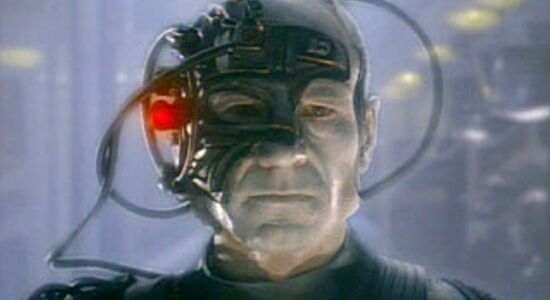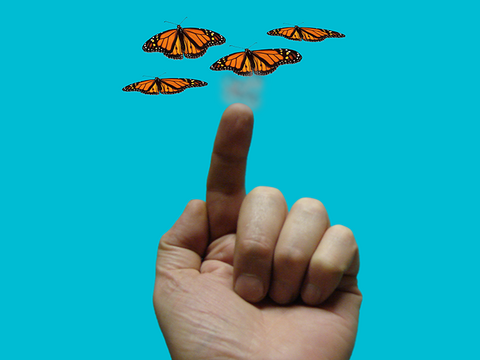I seriously do believe that the flight from death into a synthetic existence might be a serious mistake. The species would be creating a super-competitor for the dominance of resources on this planet. The complex economic, social, and philosophical friction generated is going to leave someone with the short end of a burning stick.
The very idea that machines (even ones programmed to simulate a once living person) might be afforded the rights and privileges that living breathing human beings do is so incendiary it is difficult to imagine a world where it could seriously occur.
The question of simulation (copy) vs Transfer is an interesting one.
In the star trek plot device i mentioned we have no questions its a transfer, since the source is destroyed just before the target is built.
Since the target feels a very real sense of continuity of self , its considered by the audience and the character a transfer, not a copy.
The Chippocampus as its sometimes refered to raises another possibility, If implanted with one, and used as the primary storage device, could "you" be transfered to a new body, via simple chip transplant.
I dont think there is any doubt a full head transplant would consitute transfer, so a chippocampus transfer is just the same.
Now the ethics of sanctioning a post biological conciousness extension is already being discussed
LONDON — A British ethics group has launched a debate on the ethical dilemmas posed by new technologies that tap into the brain and could bring super-human strength, highly enhanced concentration or thought-controlled weaponry
Brain technology that could enable ‘super-human’ « mindcomputers
Neurotechnology | Nuffield Council on Bioethics
Report due in 2013, should be interesting reading
I cant see why a post biological intellect or
second phase individual should be any more or less a danger or drain on resources, indeed its the biologs with their ability to breed having ten or more offspring that are the drain on resources, a P2 unless transfered to a fully functioning replacement bioform cant replicate, and indeed unless the replacement bioform carrys their own genes, why would they want to.
Issues regarding resources could be addressed by optimising the replacement bioforms for far greater biological efficiency than the current models have.
Remove the ability to procreate, make the unit smaller, but stronger. replace the digestive system with a better fuel source solar perhaps, give it the photosynthesis ability of plant bioforms. Give it durability so it lasts a couple of hundred years before breaking down.
Give it large light sensitive , broad spectrum sensitive eyes so it doesnt need to use artificial lighting when its dark.........
Done properly a P2 replacement bioform, can be a more efficient , far less resource hungry person than a native biolog
P2's should have the same voting rights as a native biolog, a physical body is not what consitutes a person, thats why a brain dead patient has life support switched off.
The bioform may be warm, but the "person" is gone.
P2's are people too........
I cant help wondering what sort of a world we would live in where the Einstein's and Tesla's can continue to think learn and invent for hundreds and even thousands of years.
And the advantage of having cloud memory systems will be very useful in space exploration and other dangerous endeavours.
If your body gets destroyed, just decant a new one and load the last good backup from the cloud.
To me the ethics are no different to a heart transplant, its the same thing, the extension of a persons conciousness past the point of biological breakdown, the only difference is the length of that extension
We may want to draw the line at allowing dyslexics access to this technology though
They will just wander around saying "your ass will be laminated"




